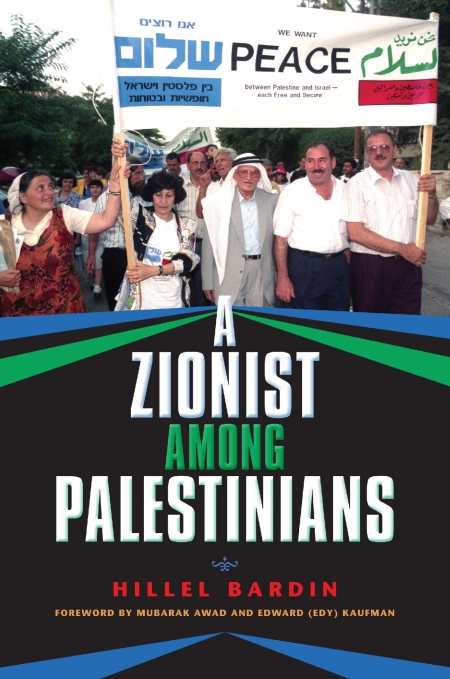
A Zionist among Palestinians
How much of what we think we know of Israel and Palestine corresponds to reality, and how much is fed by distortions? Hillel Bardin’s nuanced account of Israeli-Palestinian peace processes is presented in “a book of contradictions, for [the] conflict is filled with them.” His recollections span the period of his most acute involvement in the work toward peace, beginning during the First Intifada and continuing until now. Such margins alone highlight how antithetical the project is to popular discussions of Israel/Palestine, few of which present the intifadas as centers of peace.
And yet Bardin first began to see resolution as a possibility in the midst of them, when his discomfort over the use excessive force against pacifistic demonstrations prompted him to abandon convention and initiate conversations with those on the other side. Subsequently, empathetic bonds grew in the place of old enmity. Bardin found himself, across time, working with Palestinians in refugee camps with those who had spent periods in prison for planning acts of violence and those whose land had been encroached by settlers—all of whom shared one surprising trait: their thirst for a two-state solution, with freedom and security for those in both nations. Against the misgivings of politicians, the general disinterest of violence-driven media outlets, and the obstacles of an unmoved army, Bardin and those working with him organized bilateral discussions and demonstrations, fighting against needless separatism and inhumane conditions in occupied areas. His experiences led to the eventual marriage of two notions once held at impossible odds: that the Jewish people had an innate place in the land of Israel, a moral claim to a home that was unimpeachable; and that Palestinians had suffered incredibly in the wake of Zionism, in partial validation of their fearful reactions to its goals.
Bardin’s reflections are a refreshing and reasonable resource for conversations which too often prove polarizing. Both Israel and Palestine have received their share of villianization elsewhere, and yet Bardin’s experiences suggest that citizens of both places possess entirely sympathetic fears and hopes. He makes no attempt to excuse violence or racism from either side, though he’s meticulous in exploring their motivations. But he most emphatically lauds the many unsung heroes of the peace processes: all of the ordinary citizens who resist violence in favor of fighting for the basic rights of their brethren, regardless of where they reside. A compelling, thoughtful, and honest examination of a complex situation from a powerfully conscientious peace activist.
Reviewed by
Michelle Anne Schingler
Disclosure: This article is not an endorsement, but a review. The publisher of this book provided free copies of the book and paid a small fee to have their book reviewed by a professional reviewer. Foreword Reviews and Clarion Reviews make no guarantee that the publisher will receive a positive review. Foreword Magazine, Inc. is disclosing this in accordance with the Federal Trade Commission’s 16 CFR, Part 255.
